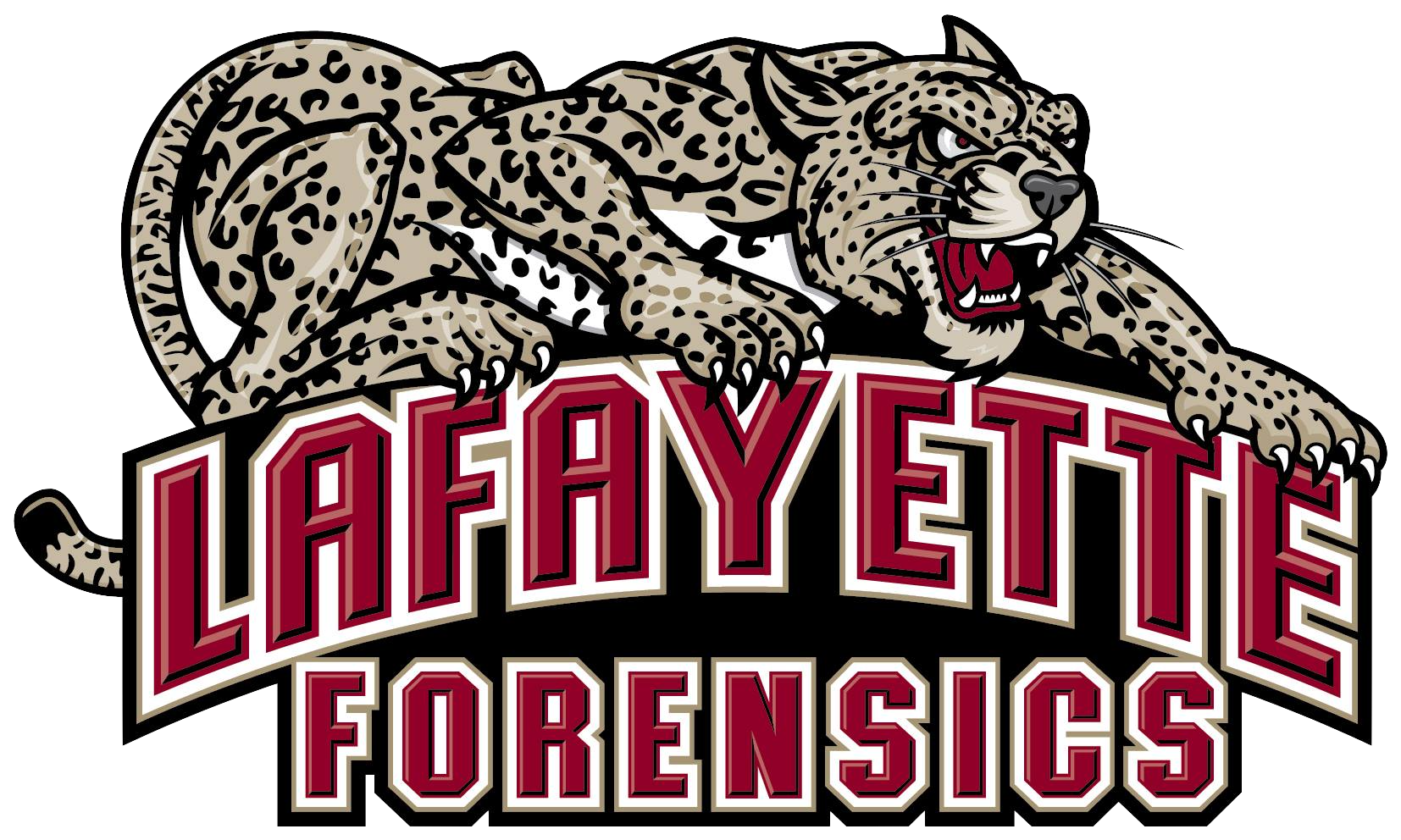Lafayette Forensics competes in all 12 NFA Events: Prose Interpretation, Poetry Interpretation, Dramatic Duo Interpretation, Dramatic Interpretation, Programmed Oral Interpretation, Persuasive Speaking, Informative Speaking, Rhetorical Criticism, After Dinner Speaking, Impromptu Speaking, Extemporaneous Speaking and Lincoln-Douglas Debate.
Interpretation Events
The interpretation events most closely resemble acting. Students perform 10 minute selections of prose, poetry and drama. The students are required to perform with a copy of the manuscript, usually read from a small black binder. Students are assisted in finding and preparing the literature for performance by the coaching staff. Dramatic Duo is performed with a partner.
Platform Events
The platform events most closely resemble traditional public speaking. Students perform memorized speeches that last 10 minutes and are judged on both style and content. The speeches can be either persuasive or informative and there is one event dedicated to the use of humor as a means to inform or persuade an audience. Rhetorical Criticism is a more academic event that uses communication theory to evaluate a communication event.
Limited Prep Events
Limited prep events are exactly that—they are not memorized or performed from a script. In impromptu, students are presented a quotation that they have a total of 7 minutes to prepare and deliver a speech that interprets the quotation. In extemp, students are presented with three current events questions. The student has 30 minutes to choose one of the questions and research and write a 7 minute speech answering the question which is then performed for a judge.
IPDA Debate: A form of one-on-one debate on a resolution that is chosen at the start of the round. Students are given 30 minutes after drawing (choosing) a topic with their opponent to research and prepare a case either negating or affirming the resolution (topic). There are typically 4 preliminary rounds and then outrounds (quarterfinals, semifinals and final rounds). The affirmative speeches are 5, 3 and 3 minutes long while the negation speeches are 6 and 5 minutes long. There are two cross examinations, each lasting 2 minutes and occurring after each competitor’s constructive (first speech). Affirmative begins and ends the debate.
